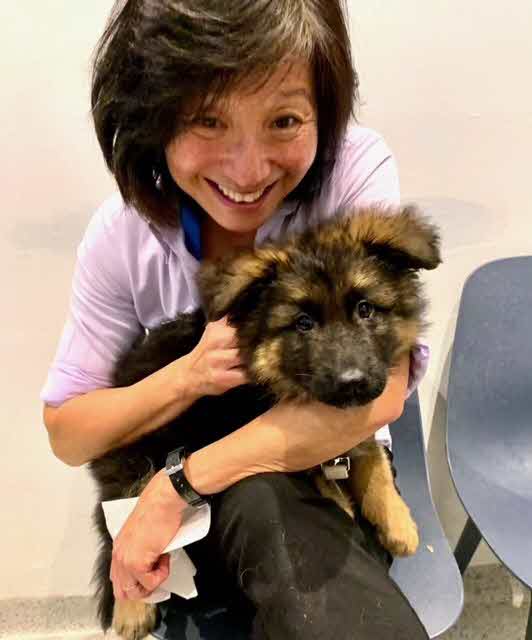
A pet’s body is composed of a complex network of systems that work together to keep it functioning properly. Sometimes a problem can develop in one area of the body and affect other body functions, making it difficult to diagnose the exact health issue.
When standard diagnostic testing fails to diagnose a sick pet, traditional treatments fail to adequately manage illness, or a condition simply does not respond to therapy, your veterinarian will consult a specialist in veterinary internal medicine.
These veterinarians are specially trained to evaluate every aspect of a pet’s history and clinical findings to determine the most appropriate diagnostics and therapy, based on the entire clinical picture.
We caught up with NSW veterinarian Dr Caryn Wun to discuss her career as a veterinarian and how she became involved in internal medicine.
“I was a city kid born and bred in Bondi, and I was always keen to work as a mixed animal vet, so my first job was in Port Macquarie, which was a fabulous place in the early-nineties, but I knew if I stayed, I would end up being there forever, so I packed my bags and went to the UK to travel and work,” said Dr Wun.
Working in veterinary roles across the United Kingdom, Dr Wun also travelled to Europe, Northern Africa and Turkey before returning to Australia to work as a locum veterinarian in various small animal practices.
“I was feeling a bit disillusioned with veterinary work, and I was thinking of returning to university to study human medicine. I still had the travel bug and this took me to San Francisco and the American College of Veterinary Internal Medicine Conference. This was the beginning of my love for internal medicine and it reignited my passion for veterinary science,” said Dr Wun.
Every day is a school day
Back in Australia, Dr Wun then worked at Coogee Veterinary Hospital for 14 years, during which time she completed several distance education courses related to veterinary internal medicine.
“It was a small clinic, but the boss had big ideas and a great attitude to modernising the practice of small animal medicine. During this time, the distance education courses I completed helped me to develop a more logical approach to medical cases that has improved my job satisfaction and ability to communicate with clients.”
A supportive practice where things happen
After returning to the locum scene, it was during this time that Dr Wun met her current boss Dr Geoff Golovsky at Vet HQ in Double Bay, where she now works as a senior associate veterinarian.
“It’s been 11 years since then and the practice has grown from a single-premises with two vets and three nurses to now two premises, eleven vets and a multitude of fabulous support staff. This is a practice where things happen! The practice values emotional intelligence and communication, as well as veterinary skills - and I am blessed to work with a great team,” said Dr Wun.
Outside of her clinical work, Dr Wun mentors veterinary students and is involved in the Small Animal, Dental and Behaviour special interest groups of the Australian Veterinary Association.
Check out the Vet Voice website for more information about a career as a veterinarian.
